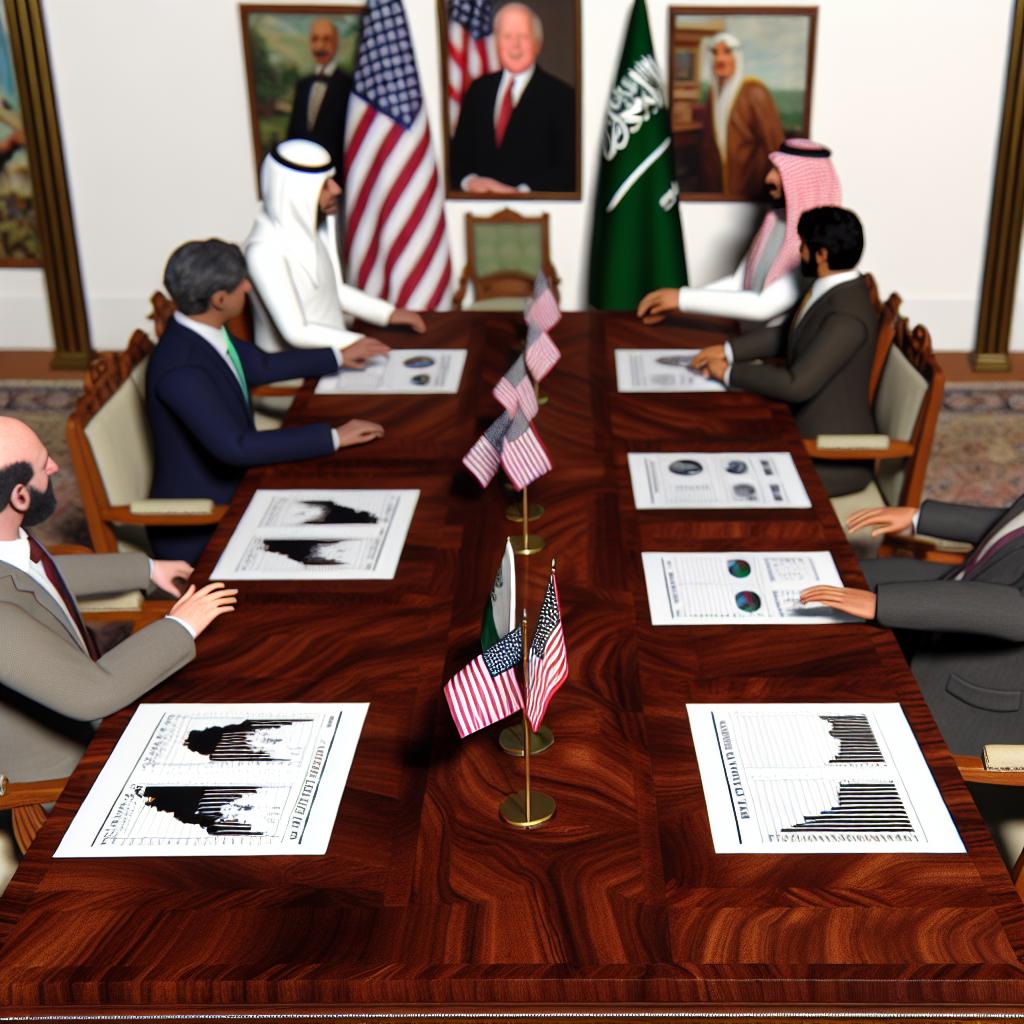The Influence of Lobbying on US-Saudi Trade Policies
The intersection of lobbying and international trade policy has long been a significant aspect of U.S. foreign relations. At the heart of these complexities is the relationship between the United States and Saudi Arabia, which serves as a compelling case study in understanding how lobbying can shape economic partnerships and trade agreements.
Historical Context
The U.S.-Saudi relationship has traditionally centered on energy interests, particularly oil. This focus dates back several decades when the discovery of oil in Saudi Arabia transformed it into a pivotal player in global energy markets. Over time, the relationship has broadened and deepened, expanding to include sectors such as defense, technology, and others. This evolution is not merely a result of changing economic needs but also reflects broader geopolitical interests. Moreover, this transformation indicates the substantial efforts by lobbyists on both ends, striving to influence policymaking and ensuring the alignment of interests between the two nations.
The Role of Lobbyists
Lobbyists assume a critical role in shaping U.S.-Saudi trade policies, acting as essential intermediaries that bridge businesses and governments with policymakers. In the United States, the dynamic landscape of lobbying involves both large firms and individual lobbyists who labor tirelessly to ensure that trade agreements and policies reflect and meet their clients’ objectives. Their influence is particularly evident within the defense sector. Here, defense contractors invest considerable resources in lobbying efforts to secure arms deals with Saudi Arabia, aligning commercial interests with national security policy.
Lobbyists advocate for policies that not only advance economic goals but also cater to strategic interests. They engage in detailed negotiations and consultations, utilizing their expertise and networks to influence critical decision-makers in government. The presence of lobbying in U.S.-Saudi trade relations underscores the role of special interests in shaping international policies, where powerful actors leverage their positions to craft beneficial outcomes.
Economic Impacts
The impact of lobbying is palpable across various sectors that form the backbone of U.S.-Saudi trade relations. In particular, lobbying has facilitated sustained arms sales, a cornerstone of this trade relationship. The flow of arms and defense equipment not only provides financial benefits to U.S. defense contractors but also supports employment and economic activity within the country. The economic ripple effects extend beyond immediate profits, influencing job creation and infrastructure development.
Similarly, the energy sector has been a focal point of lobbying activities. Historically, energy companies lobbied fervently to preserve advantageous terms in U.S.-Saudi oil agreements. By securing a stable supply of oil, these companies foster global economic stability and ensure market predictability. The ramifications of such lobbying extend beyond commercial interests, as energy security and market dynamics are integral to broader economic stability.
Lobbying efforts influence other facets of trade relations as well. The introduction and adaptation of policy changes as a result of lobbying affect regulatory environments, tariffs, and trade barriers, potentially reshaping the competitive landscape for various industries.
Recent Developments
Recent years have witnessed a notable diversification in the focus and strategies of lobbying efforts within U.S.-Saudi trade relations. Beyond traditional industries such as defense and energy, there is an increasing emphasis on emergent sectors like technology and renewable energy. Lobbyists are navigating the complexities of these evolving industries, working to maintain the enduring ties between defense and energy while simultaneously fostering cooperation in technology and renewable energy sectors.
The inclusion of technology and renewable energy within lobbying agendas signifies a strategic adaptation to contemporary global challenges, such as climate change and technological advancements. By engaging with new sectors, lobbyists aim to secure favorable conditions for U.S. businesses, promoting investment and collaboration in areas with potentially transformative impacts.
Lobbyists also work to address regulatory challenges that may hinder the growth of these sectors. The involvement of lobbyists in legislative and policy discussions can lead to the creation of conducive frameworks for fostering innovation and development, aligning the interests of both nations in a rapidly changing world.
In conclusion, lobbying stands as a powerful force in shaping U.S.-Saudi trade policies. These efforts offer significant economic benefits, aligning national and commercial interests while contributing to bilateral cooperation. However, they also present challenges and raise questions regarding the balance of interests against broader policy considerations. Understanding the nuances and influences of lobbying within U.S.-Saudi trade policies is essential for comprehending the intricate web of relationships and interests that define this bilateral relationship. The ongoing evolution of lobbying efforts, alongside emerging global priorities, ensures that this aspect of international relations remains both dynamic and pivotal.
This article was last updated on: August 24, 2025




